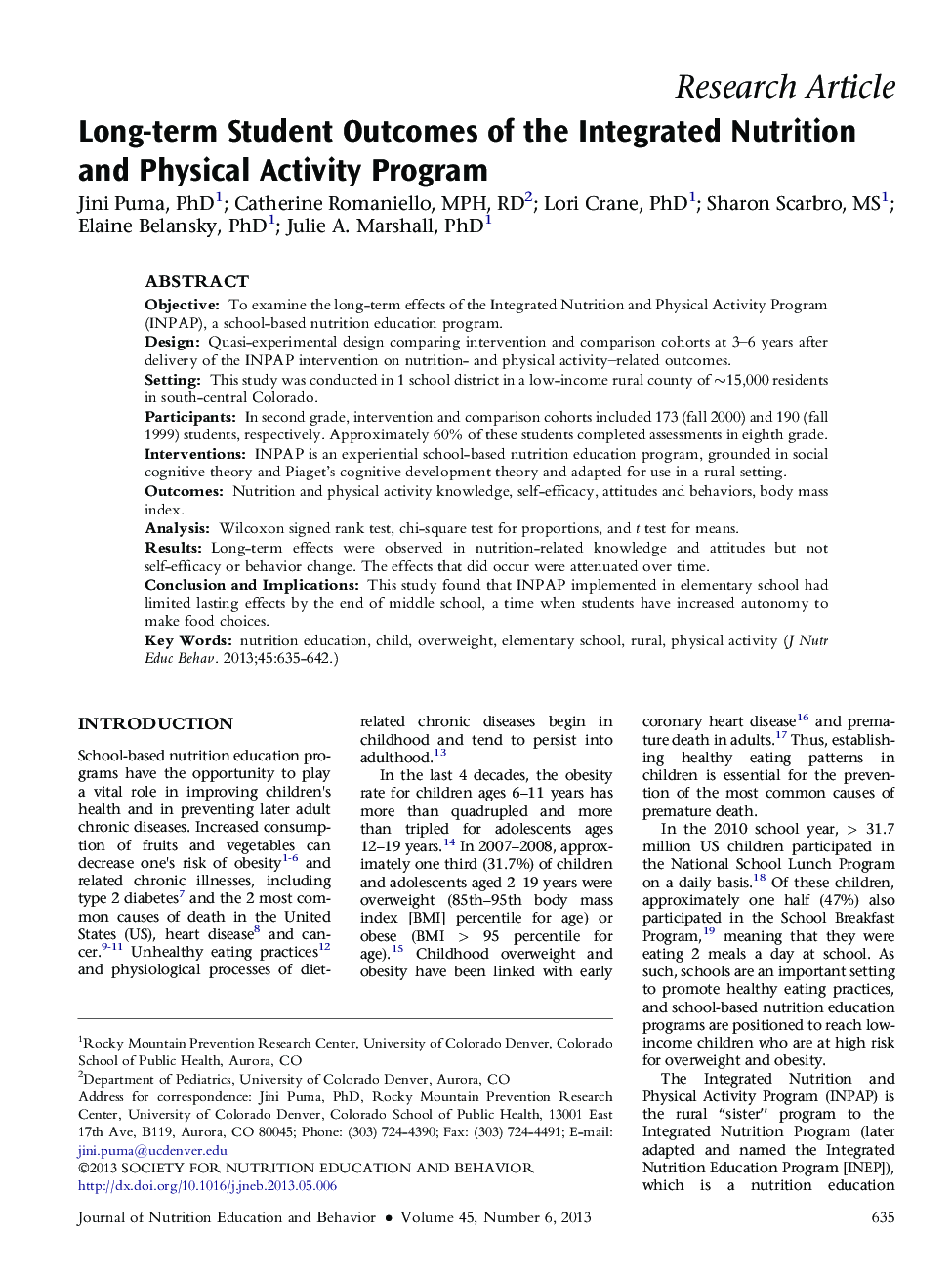| Article ID | Journal | Published Year | Pages | File Type |
|---|---|---|---|---|
| 362009 | Journal of Nutrition Education and Behavior | 2013 | 8 Pages |
ObjectiveTo examine the long-term effects of the Integrated Nutrition and Physical Activity Program (INPAP), a school-based nutrition education program.DesignQuasi-experimental design comparing intervention and comparison cohorts at 3–6 years after delivery of the INPAP intervention on nutrition- and physical activity–related outcomes.SettingThis study was conducted in 1 school district in a low-income rural county of ∼15,000 residents in south-central Colorado.ParticipantsIn second grade, intervention and comparison cohorts included 173 (fall 2000) and 190 (fall 1999) students, respectively. Approximately 60% of these students completed assessments in eighth grade.InterventionsINPAP is an experiential school-based nutrition education program, grounded in social cognitive theory and Piaget's cognitive development theory and adapted for use in a rural setting.OutcomesNutrition and physical activity knowledge, self-efficacy, attitudes and behaviors, body mass index.AnalysisWilcoxon signed rank test, chi-square test for proportions, and t test for means.ResultsLong-term effects were observed in nutrition-related knowledge and attitudes but not self-efficacy or behavior change. The effects that did occur were attenuated over time.Conclusion and ImplicationsThis study found that INPAP implemented in elementary school had limited lasting effects by the end of middle school, a time when students have increased autonomy to make food choices.
